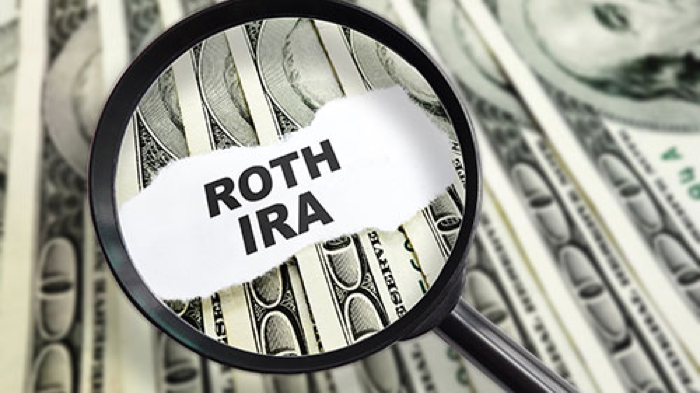2 min read
Common Questions About Managing Your IRA
An individual retirement account (IRA) can be a powerful tool for investing and saving your money — especially when you manage it wisely. If you’re...
Manage your everyday finances with convenient accounts, flexible cards, and personalized service designed to fit your life.
At First Federal Bank, we offer flexible mortgage solutions for almost any situation, helping you secure the right financing for your dream home.
Business banking offers secure financial management, streamlined transactions, credit options, and tools to help businesses grow efficiently and sustainably.

 As you plan for retirement, it’s important to invest your money in a way that maximizes your income in your senior years. In some cases, a Roth IRA conversion could get you closer to this goal by allowing you to pay less in taxes when you retire. Before you take this route, it’s important to understand the basics of Roth IRA conversions and determine whether they fit your specific financial situation.
As you plan for retirement, it’s important to invest your money in a way that maximizes your income in your senior years. In some cases, a Roth IRA conversion could get you closer to this goal by allowing you to pay less in taxes when you retire. Before you take this route, it’s important to understand the basics of Roth IRA conversions and determine whether they fit your specific financial situation.
What is a Roth IRA?
There’s a big difference between Roth IRAs and options like a traditional IRA or 401(k) plan. Traditional plans let you contribute money that’s only taxed when you withdraw it in retirement. But when you contribute to a Roth IRA, the money you put in has already been taxed. Your contributions and earnings will grow tax-free, and you won’t owe the IRS anything when you withdraw money.
What is a Roth IRA conversion?
A Roth IRA conversion is simply a transfer of money from your traditional retirement account to a Roth IRA. When you do this, you’ll need to pay the deferred taxes on the amount you withdraw before it goes into the Roth IRA. According to Jean Folger’s article for Investopedia, once the money has been transferred, you can withdraw it penalty-free from the Roth IRA after you’ve met two conditions. First, you must wait five years. Second, you must be at least 59½ years old.
Benefits of a Roth IRA conversion
Roth IRA conversions come with a variety of potential benefits. Mark Stein writes for Kiplinger that taxes are the lowest they’ve been in decades. Making a conversion and taking the tax hit now could save you money farther down the road if tax rates go up again. Converting to a Roth IRA could also benefit you if you expect your income to keep growing. Even if you end up in a higher tax bracket later in life, your Roth IRA withdrawals would help lower your taxable income.
Per Folger, a Roth IRA conversion offers a major upside for higher earners. Normally you can’t contribute to a Roth IRA if your modified adjusted gross income exceeds $140,000 (or $208,000 for joint filers). However, there’s no such restriction on conversions, giving you “backdoor” access to a Roth IRA’s eventual tax advantages even if you wouldn’t otherwise be eligible.
Roth IRA conversions also come with another perk. Unlike traditional retirement accounts, you don’t have to make withdrawals, known as required minimum distributions, from your account once you turn 72 years old. If you don’t need the money, this means you can leave it untouched and pass it on to your heirs tax-free.
Drawbacks of a Roth IRA conversion
Roth IRA conversions aren’t right for everyone. The biggest drawback is the fact that you’ll owe the applicable state and federal taxes on the transferred amount. This could be a significant sum of money, especially if you’ve built up savings over the years. Stein warns that it could even push you into a higher tax bracket for the year. If paying these taxes will stretch your finances too severely, you may be better off sticking with your current arrangement.
Timing and uncertainty are two more drawbacks. Long-term tax savings are the primary reason to go through with a Roth IRA conversion, but if you’re near retirement, there may not be enough time for it to pay off. A conversion also might not pay off if you expect to be in a lower tax bracket once you retire, or if your financial position is uncertain.
Roth IRA conversions are a powerful investment tool, but they’re not for everyone. As you assess your financial future, be sure to consult with a financial professional to determine the right retirement savings strategy for your needs.

2 min read
An individual retirement account (IRA) can be a powerful tool for investing and saving your money — especially when you manage it wisely. If you’re...

A 401(k) plan may be ideal when it comes to saving for retirement. Still, it’s possible to meet ambitious retirement goals even without one. If your...

When it comes to retirement planning, employer 401(k) programs tend to be the option people think of. But there are other ways you can save money for...
Manage your accounts, make payments, and more.
Open an account with us.